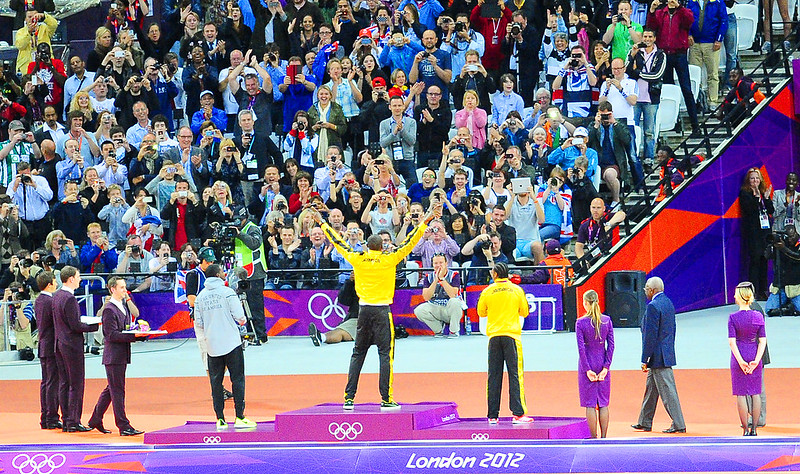The Rule 40 blackout period for the 2020 Summer Olympic Games started on July 13. This should be a non-issue for a properly activated sponsorship, so of course it’s a source of angst for track & field.
Track & field seems to make more noise about Rule 40 every four years than any other Olympic sport. This says much more about track & field than it does the International Olympic Committee.
At its core, Rule 40 is a pretty standard intellectual property protection clause. Every major sports property has a list of registered trademarks - not just logos, but words and phrases - that unauthorized parties cannot use for commercial purposes. If a company, big or small, has a March Madness sale with extra deep discounts on their Elite Eight best-sellers, the cease and desist order will be at their registered agent before they reach their Final Four blowout.
The IOC sometimes goes towards the extreme in enforcing Rule 40, barring use of the suffix -lympics and even the name of the host city. Many of the things they go after are not even registered trademarks, but the intimidation factor is sufficient to shut things down. When it comes to a company that sponsors an athlete, the IOC has a powerful deterrent: the sanction falls on the athlete, not the company. The company may have the resources to battle the IOC over use of a phrase or something that looks like five rings, but the IOC could expel the athlete from the Games.
None of this should matter. First, companies enter relationships with Olympic hopefuls or qualified athletes knowing these rules. If they base their marketing or advertising campaign on the period of the Games themselves, well, that’s on them for poor planning.
For companies and athletes that have a relationship that spans more than the Olympic period - such as a shoe company that sponsors an athlete for several years - the Games themselves are a small fraction of the potential opportunities the company has to activate around the sponsorship. It’s hard to feel sorry for the company if they do not all that much with their athletes for 204 weeks of the quadrennium and then wind up a sob story about those four other weeks.
Yes, those are four very big weeks. But they are not the only weeks, not athletically, not commercially.
That’s not even what track & field athletes feel they are missing out on. This is a representative tweet of at least the last three Summer Olympiads.
Olympic athletes — Today is the last day to freely thank your sponsors. #Rule40
— Kyle Merber (@TheRealMerb) July 13, 2021
There’s that phrase again. “Thank your sponsors.” This is what track & field athletes decry about the Rule 40 blackout period: a lost opportunity to make the most non-commercial, non-value creating, non-experience enhancing statement possible.
Whatever someone is to you, if you’re thanking them - if you think you need to thank them as part of your relationship - they’re not your sponsor. They’re your supporter. They’re your backer. They’re your patron, like the old ladies who give money to museums and the Medicis who patronized (think about the two meanings of that word) Florentine artists.
MORE: TRACK & FIELD NEEDS TO THINK VALUE FOR VALUE, NOT “THANK YOU”
Whether an athlete thanks a brand before, during or after an event, they are not creating value for that brand. Nor are they are enhancing the fan experience. Which means it’s not accurate to call it a sponsorship, nor is it accurate to consider it an exchange of commercial value.
“She thanked her sponsor. I’m totally buying that company’s shoes / sunglasses / watches / car / hard seltzer / financial services. Or, at the very least, I think more positively of the brand than I did before this interaction in a way that moves me towards some brand goal.” Said no one ever.
Rule 40 should be an annoyance. If there’s anything worth getting upset at the IOC about, it’s their tap-dancing justification for the rule. They should just forthrightly say that they are protecting their sponsors’ investment, like every other sports property.
Such rules are no more than annoyances for most brands and sponsored sports properties. The difference between those in other sports and those in track & field is that the former activate year-round and across multiple channels to create value for both parties (and, in the best cases, the fans). The latter are trying to squeeze in a bit of gratitude, another reminder of the real nature of these relationships and the cultural challenges this sport still faces.
Photo credit: sportsflair2000 / Flickr, under CC BY-SA 2.0.

